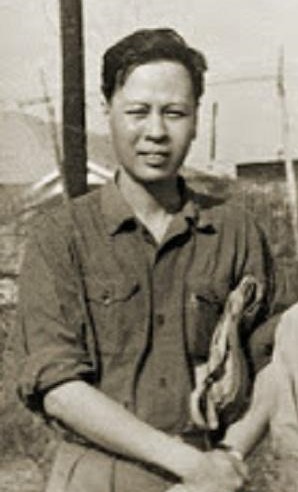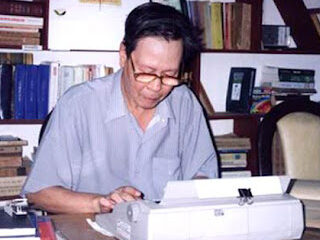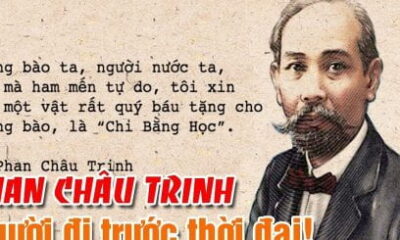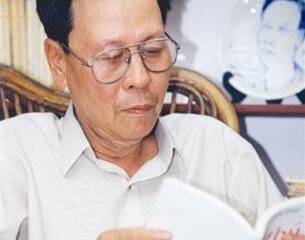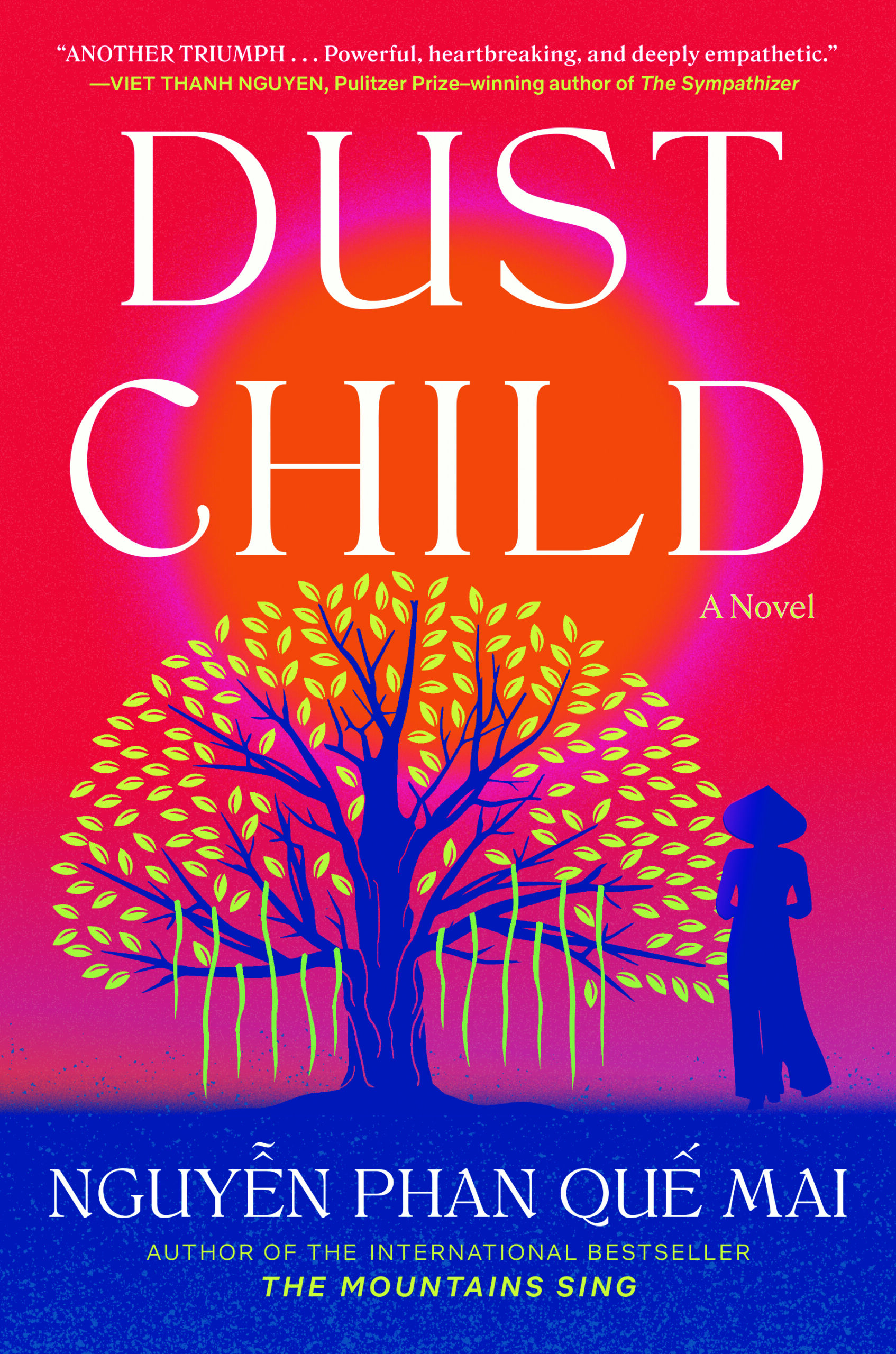Editor’s Note: The following excerpt is from a memoir by the esteemed writer Nguyễn Mạnh Khải (1930-2008), celebrated as one of the foremost literary figures in communist Vietnam. His lifetime was marked by numerous accolades, including the Le Thanh Nghị Literature Prize (Regional Level III, 1951), the Vietnamese Arts and Literature Prize (1951-1952), the Vietnamese Writers’ Association Prize (1982), the Southeast Asian Literature Award (2000), and the prestigious Ho Chi Minh Prize for Literature and Art (2000). Originally penned in Vietnamese and published posthumously in 2006, this collection has been translated by our editor Vinh Phu Pham. The memoir will be presented in six installments.
Political Essays – 2006
Nguyễn Khải
7.
Any state that replaces social or religious theories for a constitution will inevitably transform into an authoritarian regime. Because among millions of citizens, there will be numerous groups with differing beliefs and convictions from those in power. They become suspicious communities, subject to discrimination, primarily losing the rights to freedom of thought, freedom of speech, and freedom of publication. This particularly applies to the intellectual class. As for those engaged in other professions, even if they have no connection to books, they will still feel deprived of many freedoms, like the freedom to choose their own way of life, for instance. Monopolizing ideology naturally leads to monopolizing lifestyles, as each theory carries its own moral standards, its own idealized criteria for becoming a model for monks and believers.
I once had an aunt living in Hanoi during the temporary French occupation, an old resident of Hanoi. After the Liberation, a year went by, and she confided in me, feeling that life under the revolution turned out to be harder than expected. She said that the government, instead of focusing on significant matters, concerns itself with trivialities. From how one dresses, to how one loves, and how one raises their children, these are things that the people know how to take care of on their own, they know how to learn, and if they can’t manage it, then public opinion will take care of it. That’s how it’s been from time immemorial until now.
Now, let’s talk about the loyal followers of Marxism, the revolutionaries from the early days of the country. Even our artists find life “not easy” when it comes to writing. If you stick to the rules, you’ll find only two subjects: hatred and sacrifice. Only three types of people are revered: workers, peasants, and soldiers. The vast, colorful world is reduced to just two colors: red, our army, and black, our enemies. Initially, revolutionary literature was somewhat unusual compared to the literature of the past, and young readers welcomed it. However, after continuously reading about a few familiar topics, a few familiar types of people, and very familiar emotions, even loyal readers become bored. We, the writers, get bored ourselves.
Lacking talent, restrained from head to toe, spinning around in a circle, rehashing the same thing, the more we write, the more nonsensical it becomes. A literary realm that must serve politics (which, like the weather, changes from sunny to rainy) has lost half its freedom. Furthermore, it must align with politics according to the directives and policies of each era, leaving nothing that can be called freedom.
And that’s not even mentioning that each level of authority has its own demands, its own ways of dealing with things—sometimes gentle, sometimes harsh. Artists no longer know which path to take. Literature has come to such a point, yet it still receives national awards. But will anyone in Russia today want to reread the works that received the Lenin and Stalin prizes? I too have received the highest national literature award, but I know that in just ten years, with changing times, no one will remember me anymore. I was a writer of my time; when that time ends, literature must die. Anthologies, complete works, all will be used as wrapping paper for resale by future generations. How sad, right?
But when I think about it, there’s nothing to be sad about. Humans live in a limited time frame, dreaming that what they create will belong to eternity. What a laugh! Of course, there are still many intellectual works that belong to the realm of immortality, but they belong to the realm of geniuses. For a little ant brain like mine, looking up at those colossal heads, there’s no need to add to the sorrow. Just write about what’s within the reach of an ant’s perspective. It’s a way of thinking that lacks “national pride,” but it’s certainly the correct way of thinking.
There were countries that once thought and wrote with great pride, exuding an air of arrogance, believing that their nation had progressed a hundred years ahead of humanity and was about to reach the gates of heaven! And what happened? Well, as we’ve all witnessed over the past few decades, how did that turn out?
8.
Writer Yu Hua, a rising star in the realm of Chinese literature, in the concluding remarks of his novel Brothers (published by People’s Public Security Publishing House, 2006), expounds on the main idea that the world’s history from the Middle Ages to modern times spans 400 years. However, in China, from the time of the cultural revolution, the entire country plunged deep into the medieval darkness of that era, undergoing astonishing changes to the point that China rapidly joined the ranks of the G8 major economies. The vast gap between these two eras has been condensed into just 40 years. It is indeed remarkable when viewed from a global and national perspective.
However, what will be the outcome when examining each individual, especially those individuals who were not adequately prepared by their personal history, culture, tradition, and, most importantly, their own character development? In my opinion (N.K.), these individuals are prone to break under the pressure of significant challenges. Their core is not yet strong enough, not sufficiently enduring, and lacks the genetic and educational qualities (which require time) to effectively cope with the rapid environmental changes.
Revolutionary leaders often focus solely on the goal and the quickest, most direct routes to achieving it, regardless of whether their citizens are satisfied or not. They naively believe that they can simply impose their will, push forward through mass revolutionary movements, assuming that people will eventually adapt. However, for those individuals whose hearts are not aligned, any policy, no matter how well-timed, will eventually be discarded, leaving no positive impact.
What’s even more surprising is that even antiquated, reactionary economic organizations of a bygone era have numerous opportunities for revival and appear to persist for a long time. In the 1990s of the 20th century, many veteran Vietnamese revolutionaries were astonished and pained by the rapid downfall of a superpower whose roots had deeply penetrated Russian soil for a century. In reality, that model of a future utopian society had no foundation. It was built on sand.
All significant changes relied on mass movements created and driven solely by propaganda, devoid of self-sustaining resources. Everything had to be forced, staged, and enacted by professional actors according to a unique script. Two renowned European writers were invited to witness a performance depicting an ideal society led by communists. Romain Rolland praised it without reservation, while André Gide criticized it from beginning to end.
One writer only looked at the surface, the overall picture, and saw the people singing, dancing, waving flags, and flowers everywhere. The other writer observed the hidden corners of the regime and the personal experiences of many individuals he encountered. Crowds often give a misleading impression, as they can’t maintain independence in their emotions and judgments. On the other hand, an individual’s private experiences always belong to humanity, both today and in the future.
A society where citizens lack the freedom to live and speak truthfully, and where writers are denied the opportunity to express their private thoughts on paper, is a society without a foundation. Nations living together in a federation, calling each other brothers and comrades, may seem peaceful and harmonious on the surface. However, when they part ways, a sense of unease arises.
They immediately realize the many benefits on their own soil that their fraternal allies have shared unfairly in an unequal exchange. This triggers disputes over borders, sometimes requiring the use of tanks and artillery to negotiate. Disputes arise over oil pipelines, oil fields, military bases, and naval territories. When the U.S. and NATO seek to establish military bases in their territories, ostensibly under the banner of counterterrorism, they nod their heads, oblivious to the fact that the U.S. is their brotherly foe.
Loving the U.S. is only natural because the U.S. pours money into their empty coffers. Hating Russia is also expected, for it once bullied and oppressed them, treating them as vassals, as colonies. Now is the time for revenge. While anger clouds judgment, calm reflection reveals the natural bonds and shared history among the republics of the former Soviet Union, as they were once a single family for a century, living and dying together in the fight against the fascist threat, protecting the existence of the union as well as the republics.
They shared childbirth, blending languages, cultures, and memories. Now, each nation has returned to its individuality, contributing to and enriched by neighboring cultures, friends, and becoming wealthier and more civilized than before. Eventually, they will live together as a regional community, but this time, it will be voluntary—a form of alliance characterized by equality, democracy, and complete freedom. Any social system aimed at democracy and freedom, constructing an open society, or an open alliance, will have the fortunate chance of long-term survival with the consensus of all and the satisfaction of each individual.
9.
Recently, I had the opportunity to read two excellent books. One is On Liberty by Stuart Mill, a British philosopher who wrote it in 1859, over a century and a half ago. The other is Thoughts on Freedom by Phan Huy Đường, a prominent Marxist scholar with a reputation in France, recently published.
For the past ten years, I haven’t delved much into novels, whether they’re from our own country, China, or the West, including newly translated and published works, or those from the great minds of previous centuries. When I was young, I found novels enjoyable to read, but now, in my older age, I find myself hesitating over the pages. They no longer assimilate into my personal experiences; they fail to introduce me to new perspectives on reality or ignite any hidden sparks deep within my subconscious that would awaken fresh creative insights.
Both of these books, one borrowed from you and the other coincidentally found in a bookstore due to the name of an author I was intrigued by, captivated me just like reading a good novel in my youth. Of course, they are more challenging to read than novels, but I appreciated the personal experiential guidance they provided. Even if I didn’t fully comprehend every detail, I grasped the overarching themes. Many ideas in this essay draw inspiration from these two authors.
At the age of 60, when I wrote about a lady in her eighties who remained astute in her interactions with people, maintaining her distinct character without offending anyone, whether her family or acquaintances, I mentioned that if she were granted a lifespan of a hundred years while retaining her wisdom, she would undoubtedly unravel all the secrets of the universe. In reality, I was speaking about myself, albeit somewhat presumptuously. Yet, I believe that if I were to live longer, not necessarily to a hundred, but perhaps just ninety, as long as I continue possessing the same sharp intellect as I do now and remain open to unfamiliar experiences, even including the rejection of my own beliefs, I would come to understand humanity even more.
Back then, I realized that shortcuts in life are unnatural and lead to failure. The social revolutions in our country over the past thirty years have all fallen short, requiring restarting from the beginning, albeit in a different direction. The results have been slow and convoluted. The primary reason is that the leaders sought to condense the work of a century into just a few years. Because they did not fully understand the everyday lives of Vietnamese people, lives untouched by war or constant revolutions, lives quietly flowing through generations.
Believing that today’s Vietnamese people are vastly different from those before 1945 is a narrow-minded perspective, cultivating unrealistic ideas about the tasks needed to construct a democratic and civilized society. Competitions and campaigns are of little use in endeavors that require patience, endurance, and a foundation built by individuals rather than masses, armed with slogans, flags, trumpets, speeches, responses, applause, and flowers.
Crowds cannot stand for long under the sun to listen to leaders’ speeches. They always anticipate dispersal so they can return home. The individuals at home remain unchanged but true, unlike when they stand in the crowd, where they temporarily merge. I truly admire Fidel, a steadfast patriot and a historical figure of Cuba. He was an intellectual, Marquez’s confidant, and I’ve heard that he always carried an unfinished novel in his pocket.
This is why I found it peculiar when he compelled the public to stand half a day under the sun, listening to his grand speeches on a range of topics. At the outset of a successful revolution, such speeches make sense because people are excited about the new life and the revolutionary language is still fresh. It’s like a couple in love, in need of each other, talking about trivial matters, but time feels short. However, once they become a married couple, they only need to speak briefly about necessary matters; there’s no need for lengthy theoretical discussions.
Mao Zedong was the same. He was a skillful political figure, and his workplaces and leisure spots were stacked with books. Yet, it seems he didn’t understand his compatriots very well. People everywhere are the same; they desire peaceful lives, focused on personal matters and families for an extended period, even a hundred years. They don’t want significant changes in their lifestyles, in their work and livelihoods, in their values, particularly the value of money.
It’s not about living from one year to another in constant revolutionary fervor, alternately opposing this and supporting that, endless national and local meetings, incessant slogans shouted from homes to the streets, resembling a disorderly procession. The resulting upheavals don’t bring any benefits to any class. They only result in losses. The wealthy lose their hard-earned fortunes, built over generations; the poor lose their foundations, their sources of support, even their daily livelihoods, and end up with nothing.
Only when one is truly hungry can they truly understand the Way. If you’re starving and eat, then it’s difficult to find room to discuss the Way. This alluring doctrine, so “artistic” and enticing, especially to intellectuals, of Marxist ideology, “transform the world, transform the individual,” turns out to be nothing but a fanciful notion. It’s entertaining to talk about, and now people often bring it up to mock a social theory filled with illusions.

 Politics & Economy3 years ago
Politics & Economy3 years ago
 Society & Culture4 years ago
Society & Culture4 years ago
 ARCHIVES4 years ago
ARCHIVES4 years ago
 Politics & Economy3 years ago
Politics & Economy3 years ago
 Politics & Economy4 years ago
Politics & Economy4 years ago
 Politics & Economy3 years ago
Politics & Economy3 years ago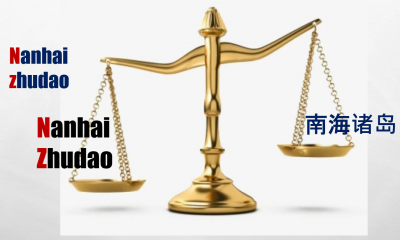
 Politics & Economy4 years ago
Politics & Economy4 years ago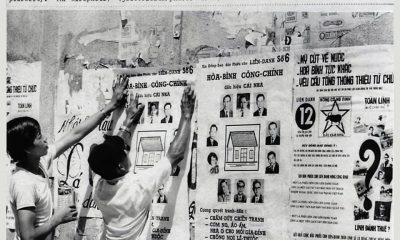
 ARCHIVES3 years ago
ARCHIVES3 years ago
